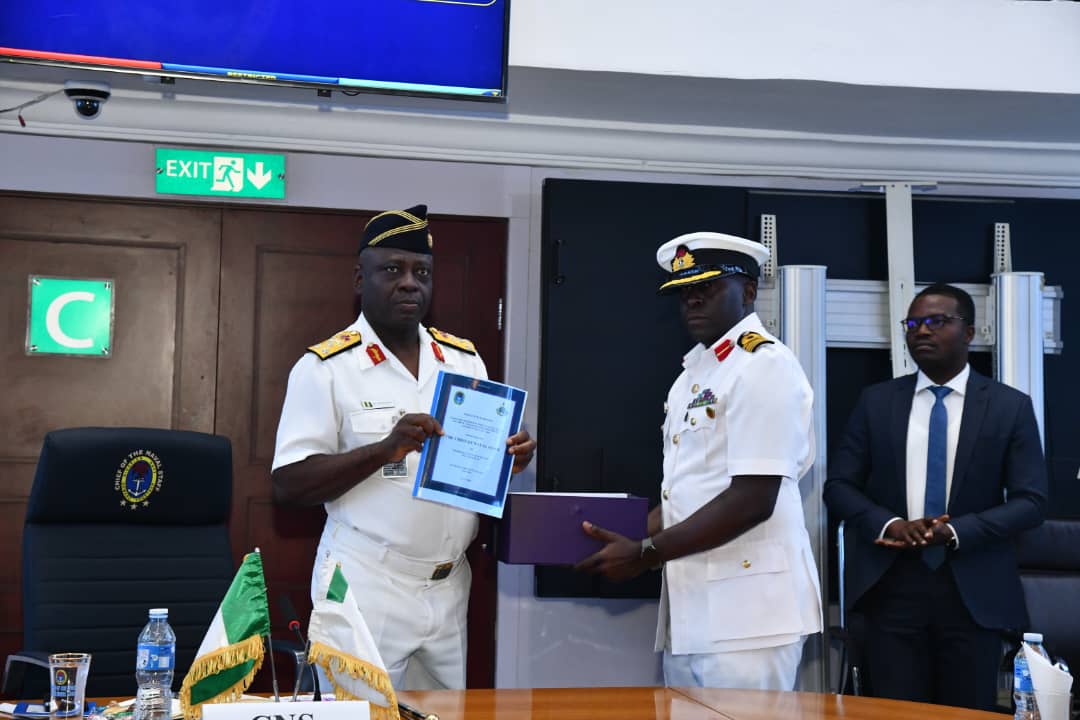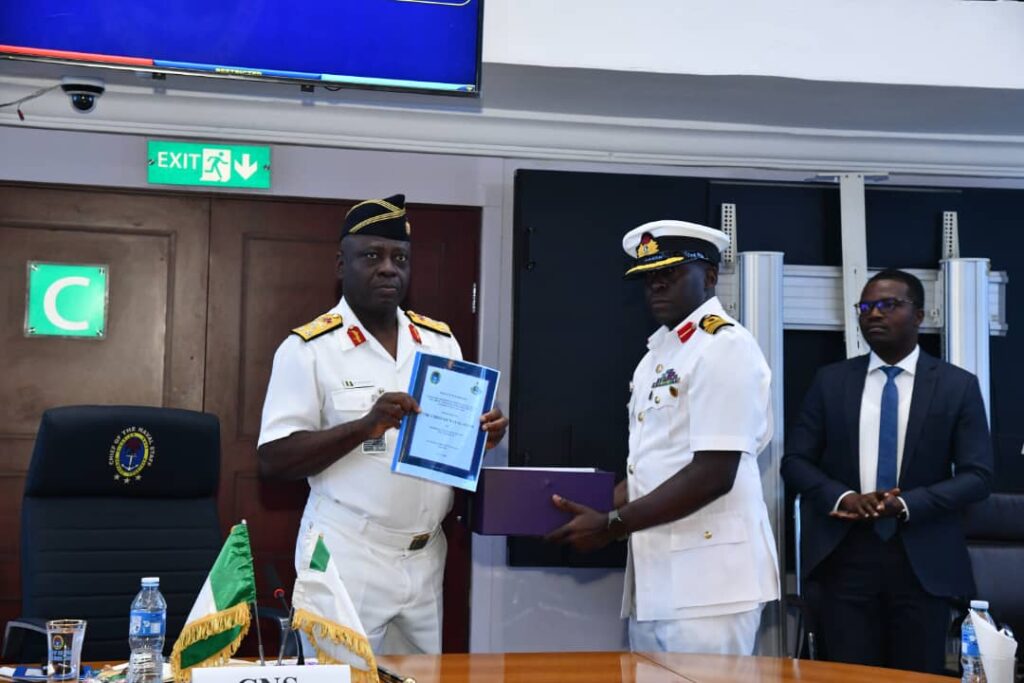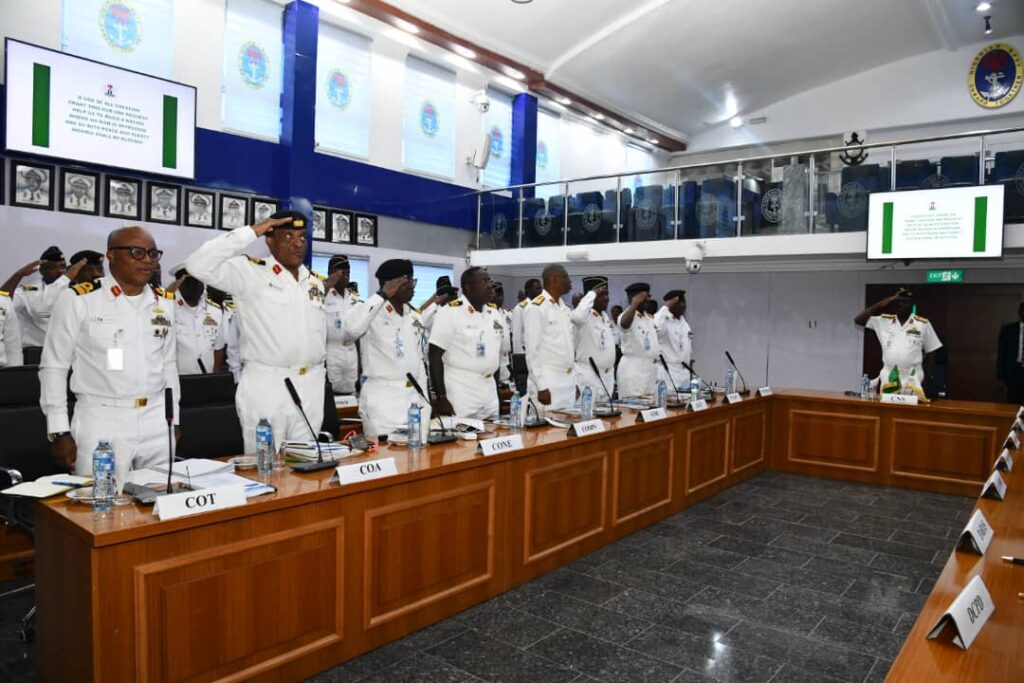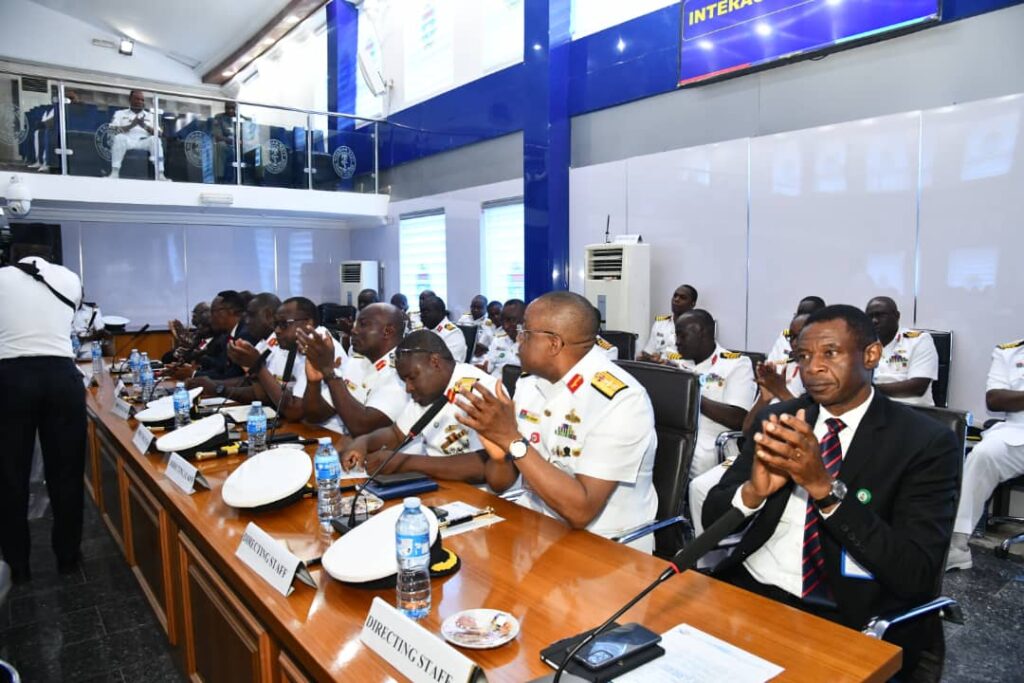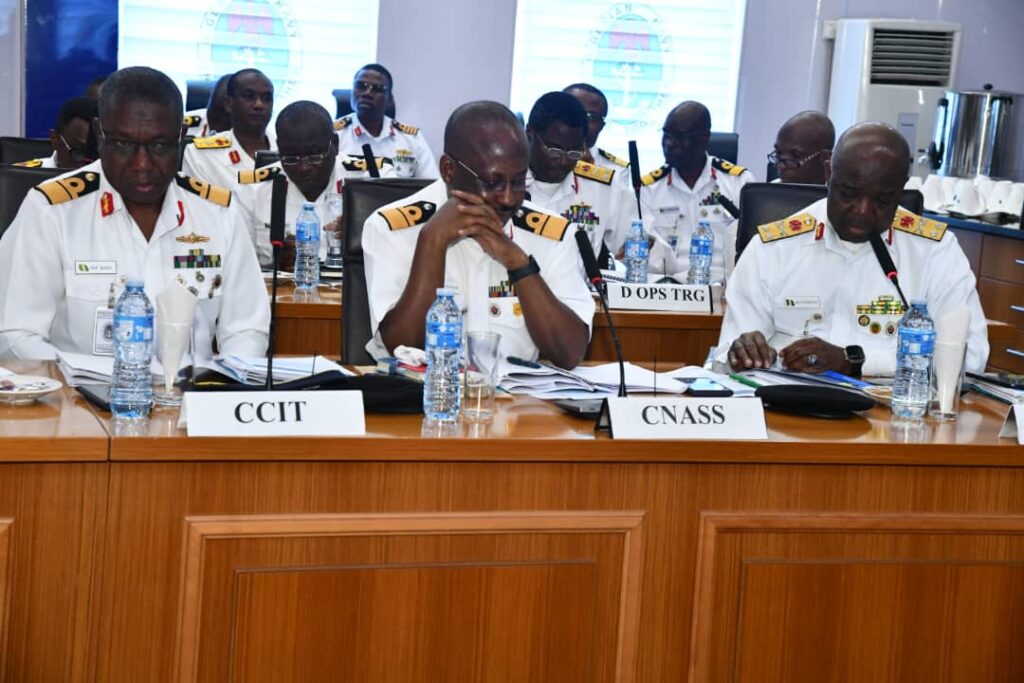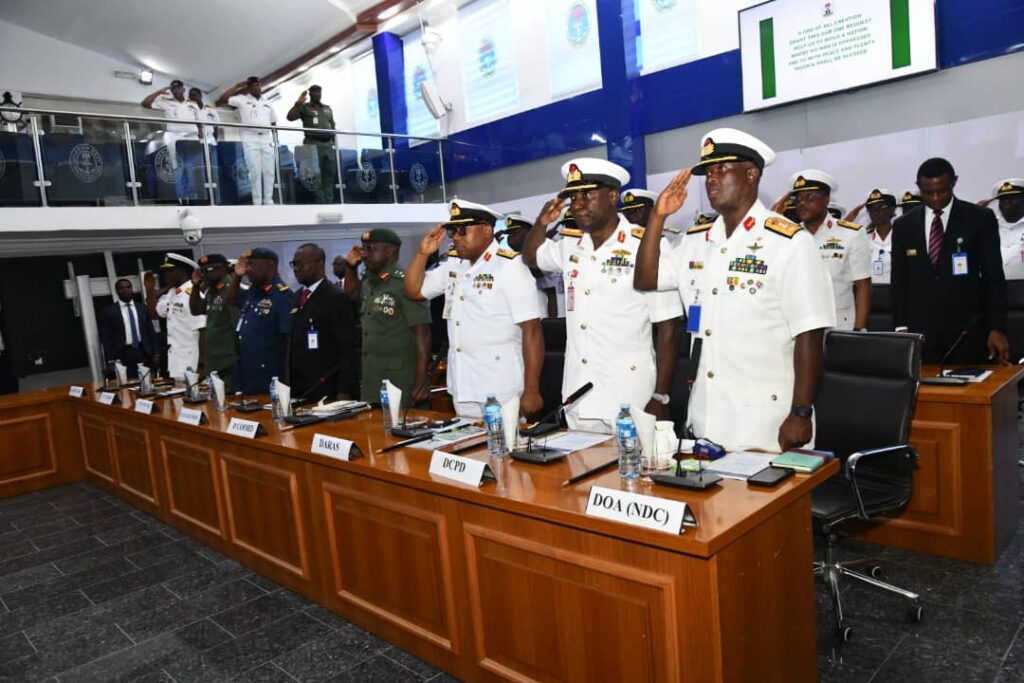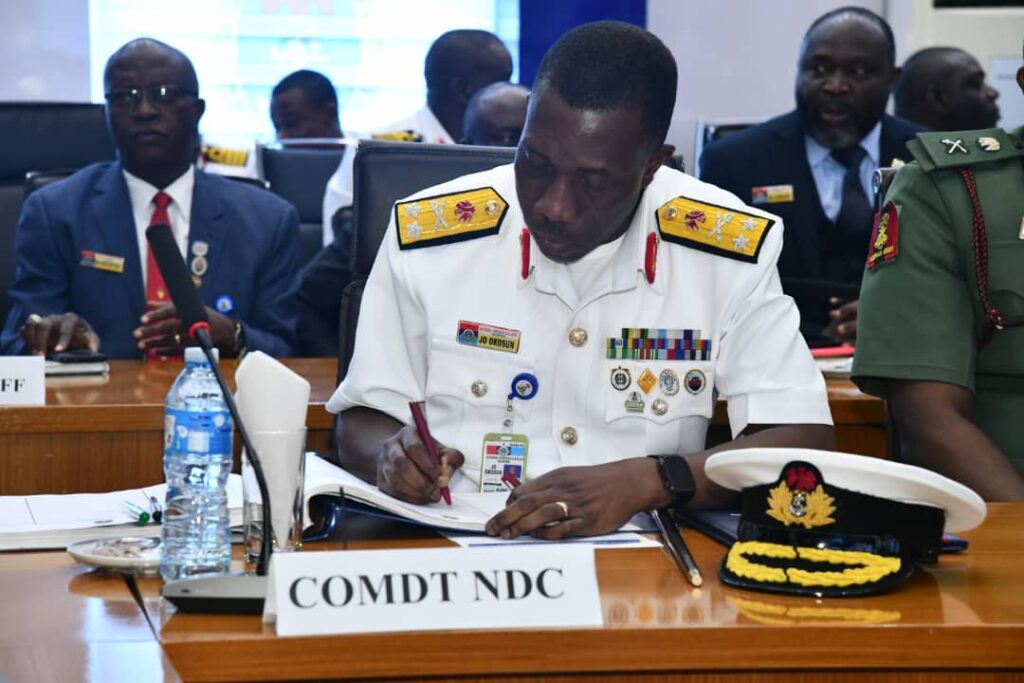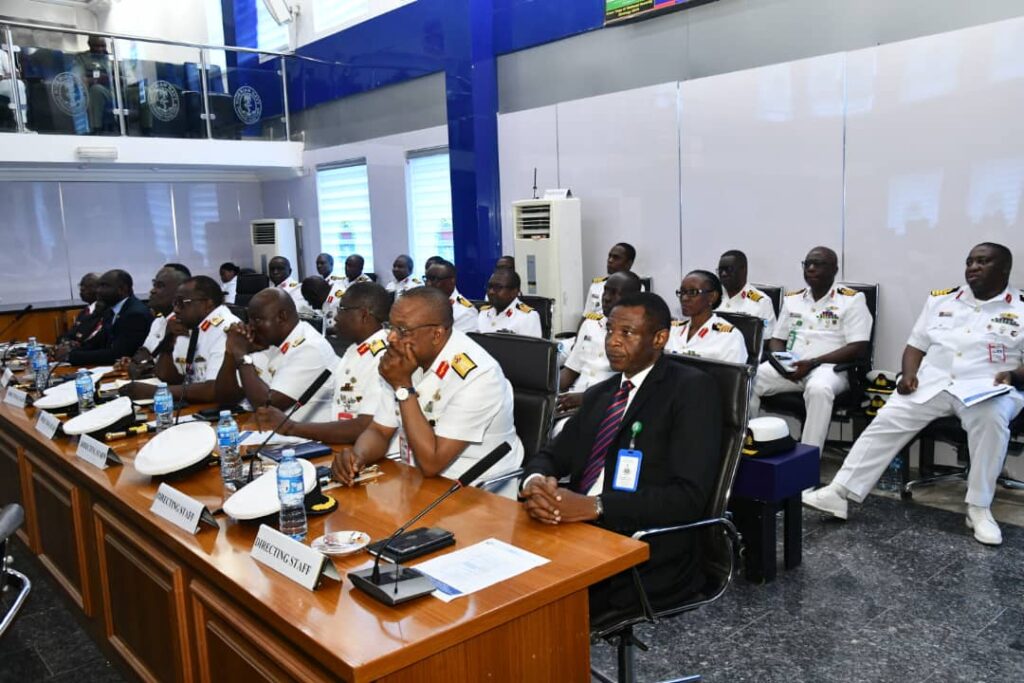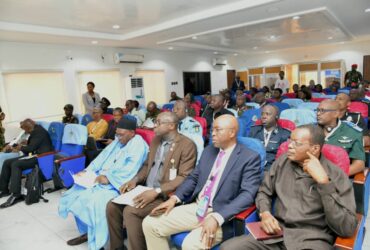Naval Strategic Development: NDC Course 33 Participants Present Service Paper to Chief of The Naval Staff
As part of the academic requirements for the award of Fellow of the Defence College (fdc), the Nigerian Navy (NN) participants of Course 33 of the National Defence College (NDC), Nigeria, have presented a service paper to the Chief of the Naval Staff (CNS), Vice Admiral Emmanuel Ikechukwu Ogalla, at the Naval Headquarters (NHQ) in Abuja.
The paper, titled “Maritime Defence Funding and National Security: Strategic Options for the NN by the Year 2040,” explores critical aspects of maritime security operations, emphasising the strategic role of sustainable funding in enhancing the NN’s effectiveness and harnessing the maritime economy for national development.

In his remarks, the Commandant of NDC, Rear Admiral James Ohimai Okosun, noted that the research task was initiated by the CNS himself, who challenged the naval participants as part of their Higher Management of Defence Module, to develop a paper that would address a critical issue capable of positively impacting the NN in the near future. Rear Admiral Okosun expressed appreciation to the CNS for his unwavering support to the College and his transformative contributions to the NN.
Receiving the delegation, Vice Admiral Ogalla expressed delight at the visit, noting that he had once served as a Directing Staff at the NDC and was therefore deeply familiar with its role in shaping future strategic leaders. He commended the participants for their insightful and well-researched paper, which he said touched on one of the most pressing issues in naval operations—funding.
The CNS emphasised that the paper effectively addressed a strategic gap in the NN’s operations and pledged that some of the recommendations would be considered for implementation. He further remarked that the Federal Government, in recent times, has demonstrated increased responsiveness to the needs of the Navy, with significant improvement in budgetary allocations and timely disbursements, an indication that it now recognises that investment in the NN is investment in the nation’s economy.
Vice Admiral Ogalla, however, noted that foreign procurement remains a significant challenge, particularly in the acquisition of platforms and spares. He stressed the need for Nigeria to develop indigenous capacity in shipbuilding and the production of spare parts to reduce dependence on external sources.
While urging the participants to maintain their focus and continue contributing meaningfully to strategic policy formulation, the CNS highlighted the importance of training future military leaders to effectively navigate the complexities of contemporary security environments. He advocated for instructional approaches that promote analytical and critical thinking, cooperative learning, mentoring, simulations, and case studies, all aimed at equipping leaders with the capacity to make sound and timely strategic decisions.
Presenting the paper on behalf of the group, Navy Captain Murtala Ahmed stated that the research is geared toward underscoring the maritime sector’s potential to drive Nigeria’s economic growth if properly funded and strategically positioned. He added that the paper outlines practical funding models and policy recommendations to strengthen the NN’s capability in safeguarding the nation’s maritime interests.
Rear Admiral Okosun describes the presentation at the NHQ as another significant milestone in the ongoing academic journey of the participants and commitment of the NN and the NDC to intellectual engagement as a tool for institutional and national development.



